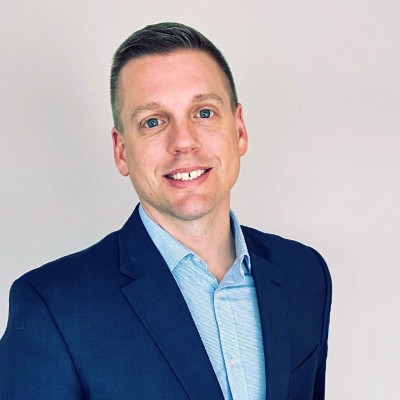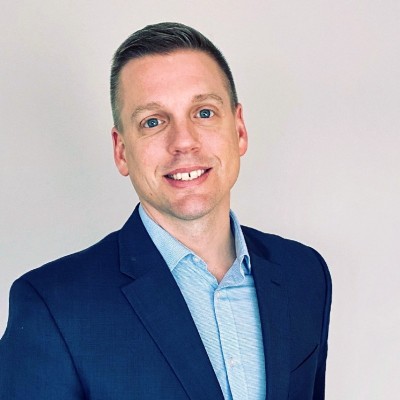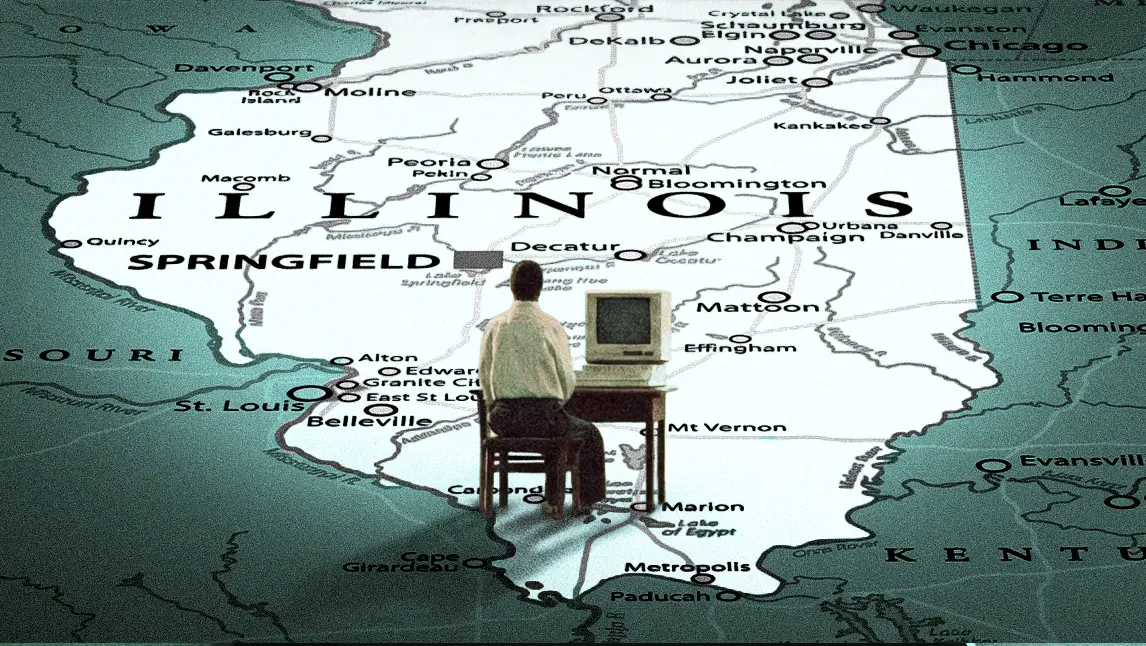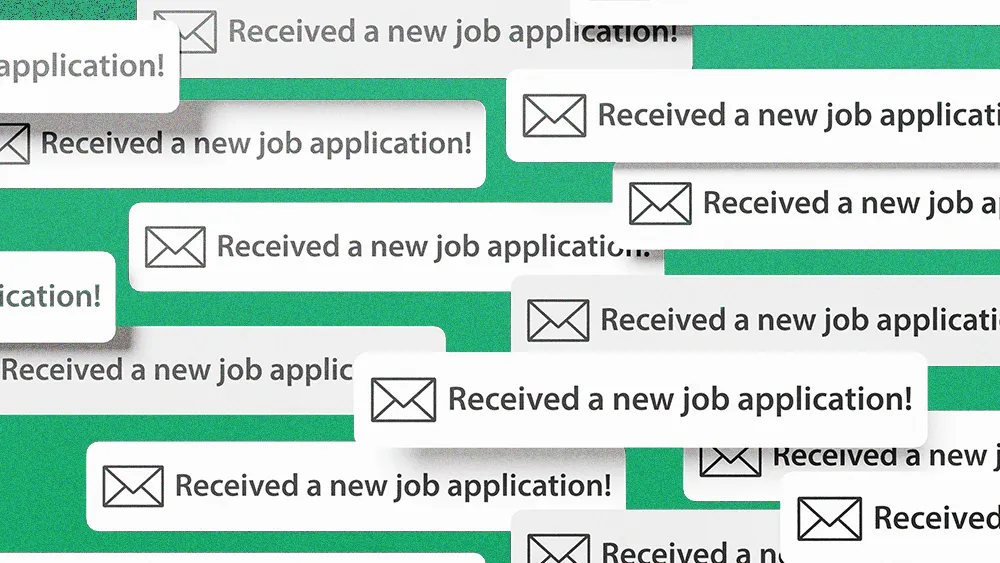How the personal-professional line has blurred, and why that’s a good thing

Key Points
Pop culture moments exemplify how personal interests can enhance workplace culture and connections.
Brad Conley, EVP at Spartan Capital Group, stresses the importance of a strong workplace culture for talent attraction and retention.
The pandemic has accelerated the integration of personal and professional lives, with pop culture playing a key role in workplace dynamics.
Conley promotes transparency and open communication, inspired by his sports background, to foster a healthy work environment.
Blurring the lines between personal and professional life boosts recruitment, retention, and team strength.
We really want to find people that excel and have a passion in something. They’re self-motivated, willing to put in extra time and practice, and committed to working toward something even when they don't feel an immediate reward.

Brad Conley
Executive Vice President
Spartan Capital Group
This year’s most talked-about moment didn’t come from a corporate stage or industry headline. It came from pop culture’s favorite couple, when Taylor Swift and Travis Kelce’s engagement turned into a cultural event that pulled nearly everyone into the same conversation. And Taylor Swift is poised to do it again with her next album The Life of a Showgirl. In fact, a new report anticipates a Swift Shift with 6% of salaried workers planning to take off for release day.
Moments like these highlight how the boundaries between personal and professional life have blurred, and how that’s not a liability but a strength. When pop culture, personal passions, or shared interests make their way into the office, they build connection—and that connection drives better business outcomes.
We spoke with Brad Conley, the Executive Vice President at recruiting firm Spartan Capital Group. Drawing on a career that includes leadership roles at major industry players like LHH and The Adecco Group, Conley argued that the key to attracting and retaining top talent lies in building a culture so strong that it becomes its own entity.
Post-pandemic, the traditional separation between our professional and personal selves has all but vanished. Technology, social media, remote work, and evolving cultural norms have erased the rigid boundaries that once defined the workplace. “The work world has really intertwined with daily life,” said Conley. “That was thrust into hyperspeed when the global pandemic hit and instead of driving to an office space every day, people were working from their homes. We all got a new window into our colleagues’ lives—their families, their home decor, even their pets.”
And despite many organizations returning to the office, the shift has stuck. In this integrated world, pop culture moments become powerful tools for connection and rapport. Whether it’s a Taylor Swift Zoom background, a viral LinkedIn post, or a chat about last night’s game, these cultural touchstones are shaping workplace conversations in a way that builds genuine relationships.
Pop culture as the spark: Conley experienced this firsthand when a LinkedIn post about Taylor Swift and recruiting unexpectedly “caught fire.” He recalled, “I got connection requests from human resource officers, CFOs, all sorts of business leaders, and it was based off of that silly little pop culture post that I never would have thought went anywhere. That one resonated with people at all walks of life.” This demonstrated the profound impact of authentic, culturally relevant content in fostering professional connections.
The power of passion: From his recruitment lens, Conley emphasized that a person’s passions, regardless of what they are, are a strong indicator of drive and potential for success. “We really want to find people that excel and have a passion in something,” he explained. It doesn’t matter if that passion is for sports, music, or entrepreneurship; the underlying dedication translates directly to stronger results. He shared examples of hiring individuals who were first chair in a school band or started a business in college, noting, “They’re self-motivated, willing to put in extra time and practice, and committed to working toward something even when they don’t feel an immediate reward.”
In a world where lives and work are intertwined, transparency acts as the essential anchor for a healthy workplace culture. Conley champions a philosophy built on clear communication and bidirectional honesty.
Straight from the coach’s playbook: On the one hand, Conley advocated a “tough love” approach to leadership and communication with his team. “Every athlete knows what it feels like to be yelled at by a coach,” he said, pulling from his experience in sports. “But you recognize there’s love in the message. Even if the delivery is harsh, it comes from a place of care and wanting you to grow.” And while he doesn’t promote yelling in the workplace, Conley explained that his approach to direct communication stemmed from those experiences.
All voices welcome: And that honesty goes both ways. “It’s my job to create an environment where people feel like they can be open and honest with their thoughts and ideas, and they’ll be accepted. They might not be implemented,” he noted, “but nobody is going to shut them down.”
Embracing a more blurred world—while keeping healthy boundaries—strengthens recruiting pipelines, boosts retention, and builds more resilient teams because it signals to employees that their whole lives are valued, not just their output. Conley calls this approach “performance-based freedom,” where trust, not rigid rules, defines employee autonomy.
Performance-based freedom: “Results, when done with humility and on a moral basis, create performance-based freedom,” Conley explained. “If the work is getting done the right way, with respect and integrity, then people should have the freedom to step away when they need to. That could mean leaving early to see their kids play baseball or taking time for something important outside of work, because the trust has already been earned through their performance.”
Ultimately, the most effective leaders recognize that lessons from outside-of-work lives offer invaluable insights into building high-performing teams. Conley’s own leadership manifesto has its roots on the playing field, where team sports taught him that “togetherness is ultimate victory.” “In team sports, there’s no one person who can win. It’s always the entire team that wins or loses.” That same principle now defines his approach to leadership, where success is measured not by individual achievement but by the collective strength of the team.
Results, when done with humility and on a moral basis, create performance-based freedom. If the work is getting done the right way, with respect and integrity, then people should have the freedom to step away when they need to.

Brad Conley
Executive Vice President
Spartan Capital Group
Results, when done with humility and on a moral basis, create performance-based freedom. If the work is getting done the right way, with respect and integrity, then people should have the freedom to step away when they need to.

Brad Conley
Executive Vice President
Spartan Capital Group
Related articles
TL;DR
Pop culture moments exemplify how personal interests can enhance workplace culture and connections.
Brad Conley, EVP at Spartan Capital Group, stresses the importance of a strong workplace culture for talent attraction and retention.
The pandemic has accelerated the integration of personal and professional lives, with pop culture playing a key role in workplace dynamics.
Conley promotes transparency and open communication, inspired by his sports background, to foster a healthy work environment.
Blurring the lines between personal and professional life boosts recruitment, retention, and team strength.

Brad Conley
Spartan Capital Group
Executive Vice President

Executive Vice President
This year’s most talked-about moment didn’t come from a corporate stage or industry headline. It came from pop culture’s favorite couple, when Taylor Swift and Travis Kelce’s engagement turned into a cultural event that pulled nearly everyone into the same conversation. And Taylor Swift is poised to do it again with her next album The Life of a Showgirl. In fact, a new report anticipates a Swift Shift with 6% of salaried workers planning to take off for release day.
Moments like these highlight how the boundaries between personal and professional life have blurred, and how that’s not a liability but a strength. When pop culture, personal passions, or shared interests make their way into the office, they build connection—and that connection drives better business outcomes.
We spoke with Brad Conley, the Executive Vice President at recruiting firm Spartan Capital Group. Drawing on a career that includes leadership roles at major industry players like LHH and The Adecco Group, Conley argued that the key to attracting and retaining top talent lies in building a culture so strong that it becomes its own entity.
Post-pandemic, the traditional separation between our professional and personal selves has all but vanished. Technology, social media, remote work, and evolving cultural norms have erased the rigid boundaries that once defined the workplace. “The work world has really intertwined with daily life,” said Conley. “That was thrust into hyperspeed when the global pandemic hit and instead of driving to an office space every day, people were working from their homes. We all got a new window into our colleagues’ lives—their families, their home decor, even their pets.”
And despite many organizations returning to the office, the shift has stuck. In this integrated world, pop culture moments become powerful tools for connection and rapport. Whether it’s a Taylor Swift Zoom background, a viral LinkedIn post, or a chat about last night’s game, these cultural touchstones are shaping workplace conversations in a way that builds genuine relationships.
Pop culture as the spark: Conley experienced this firsthand when a LinkedIn post about Taylor Swift and recruiting unexpectedly “caught fire.” He recalled, “I got connection requests from human resource officers, CFOs, all sorts of business leaders, and it was based off of that silly little pop culture post that I never would have thought went anywhere. That one resonated with people at all walks of life.” This demonstrated the profound impact of authentic, culturally relevant content in fostering professional connections.
The power of passion: From his recruitment lens, Conley emphasized that a person’s passions, regardless of what they are, are a strong indicator of drive and potential for success. “We really want to find people that excel and have a passion in something,” he explained. It doesn’t matter if that passion is for sports, music, or entrepreneurship; the underlying dedication translates directly to stronger results. He shared examples of hiring individuals who were first chair in a school band or started a business in college, noting, “They’re self-motivated, willing to put in extra time and practice, and committed to working toward something even when they don’t feel an immediate reward.”

Brad Conley
Spartan Capital Group
Executive Vice President

Executive Vice President
In a world where lives and work are intertwined, transparency acts as the essential anchor for a healthy workplace culture. Conley champions a philosophy built on clear communication and bidirectional honesty.
Straight from the coach’s playbook: On the one hand, Conley advocated a “tough love” approach to leadership and communication with his team. “Every athlete knows what it feels like to be yelled at by a coach,” he said, pulling from his experience in sports. “But you recognize there’s love in the message. Even if the delivery is harsh, it comes from a place of care and wanting you to grow.” And while he doesn’t promote yelling in the workplace, Conley explained that his approach to direct communication stemmed from those experiences.
All voices welcome: And that honesty goes both ways. “It’s my job to create an environment where people feel like they can be open and honest with their thoughts and ideas, and they’ll be accepted. They might not be implemented,” he noted, “but nobody is going to shut them down.”
Embracing a more blurred world—while keeping healthy boundaries—strengthens recruiting pipelines, boosts retention, and builds more resilient teams because it signals to employees that their whole lives are valued, not just their output. Conley calls this approach “performance-based freedom,” where trust, not rigid rules, defines employee autonomy.
Performance-based freedom: “Results, when done with humility and on a moral basis, create performance-based freedom,” Conley explained. “If the work is getting done the right way, with respect and integrity, then people should have the freedom to step away when they need to. That could mean leaving early to see their kids play baseball or taking time for something important outside of work, because the trust has already been earned through their performance.”
Ultimately, the most effective leaders recognize that lessons from outside-of-work lives offer invaluable insights into building high-performing teams. Conley’s own leadership manifesto has its roots on the playing field, where team sports taught him that “togetherness is ultimate victory.” “In team sports, there’s no one person who can win. It’s always the entire team that wins or loses.” That same principle now defines his approach to leadership, where success is measured not by individual achievement but by the collective strength of the team.




